LOCAL ADVOCATES
- Shantay Davies-Balch

- Mar 26, 2025
- 11 min read
Updated: Apr 21, 2025

In Fresno, local advocacy and activism are key to addressing the interconnected systems of injustice that affect our communities. These efforts span various areas, including healthcare access, economic security, educational equality, environmental justice, and gun violence prevention—all of which influence health outcomes. While not all the organizations featured in this exhibit focus directly on health, their work in challenging systemic inequalities and advocating for marginalized communities is deeply tied to improving health.
Individual behaviors and choices are not the key drivers of inequities, including health inequities in society. Instead, these disparities are rooted in systemic issues, the legacy of slavery, and unequal power dynamics. As a result, communities of color, racialized and historically marginalized communities, particularly Black and Indigenous populations in the United States, continue to experience lasting impacts.
Addressing these inequities requires critically reviewing and reimagining political and social systems. Political determinants of health are factors, such as decisions about resource allocations, policies, and laws that create the social that affect all other dynamics of health.
Social determinants of health are also factors and conditions that shape our lives on a daily basis and in turn, our health outcomes. Key areas are healthcare access and quality, education access and quality, social and community context, economic stability, and neighborhood and built environment.
In the past decades, there has been increasing attention on understanding how racism impacts access to these factors and conditions, with many advocating for the recognition of racism as the root cause of health disparities. The RRT (Racism as a Root Cause) framework allows for targeted interventions aimed at reducing inequities and improving health outcomes.
Local activism and community participation are essential in challenging racism and dismantling the systems that perpetuate disparities. We are inspired and encouraged by organizations and activists across Fresno who work tirelessly to challenge these systems and reimagine how our systems can work. From reducing recidivism and advocating for healthier neighborhoods to addressing gun violence and promoting political participation, these efforts pave the way for a more just society. Only through collective efforts can systemic change become possible.
We hope you enjoy the Local Advocates exhibit and learn from the incredible organizations we selected that are dedicated to building a more equitable future for Black communities in Fresno. We are proud to recognize their dedication and lasting impact.
Organizations:
AFRICAN AMERICAN COALITION (AAC)
ADVANCE PEACE
ANOTHER LEVEL TRAINING ACADEMY (ALTA)
BLACK WOMEN ORGANIZED FOR POLITICAL ACTION (BWOPA)
BWPC BLACK WELLNESS & PROSPERITY CENTER (BWPC)
CONCERNED CITIZENS
Advance Peace
Advance Peace is a national non-profit that operates in multiple cities to reduce gun violence and promote community healing. The organization works by engaging with individuals most impacted by cyclical and retaliatory gun violence. This engagement is carried out by a team of primarily formerly incarcerated street outreach workers known as Neighborhood Change Agents (NCAs). These NCAs engage with those at the highest risk of gun violence on a daily basis, offering mentorship, conflict mediation, anger management support, and enrolling individuals in the Peacemaker Fellowship®.

While in the Fellowship, each participant works with an NCA to develop a Life Management Action Plan (LifeMAP), an 18-month roadmap for activities, services, and a transition to a more peaceful life. Participants also receive intensive one-on-one and group support, counseling, social service navigation and referrals, job readiness training, internships, travel opportunities, and, if making progress, a LifeMAP milestone allowance. Advance Peace puts those most acutely impacted by gun violence at the center of developing solutions, focusing on individual healing and community change.
In 2023, a report by the UC Berkeley School of Public Health and Center for Global Healthy Cities found that Advance Peace Fresno contributed to a 40% decrease in firearm homicides in southwest Fresno in 2022 compared to 2021. In 2024, the city recorded 30 homicides, down from 35 in 2023, reflecting a continued downward trend in gun violence.
In 2021, Advance Peace Fresno partnered with Moms Demand Action to advocate for additional funding for the California Violence Intervention and Prevention (CalVIP) Grant Program. The collaboration gained significant traction through a statewide signature campaign focused on reducing gun violence. In accordance with these efforts, Moms Demand Action used a “Fund CalVIP” banner to gain signatures and raise awareness across the state. The banner received hundreds of signatures from individuals and organizations committed to reducing gun violence in their respective cities. Both organizations emphasized the importance of increasing funding for CalVIP, which supports Advance Peace Fresno and other programs aimed at expanding and replicating evidence-based violence reduction initiatives.
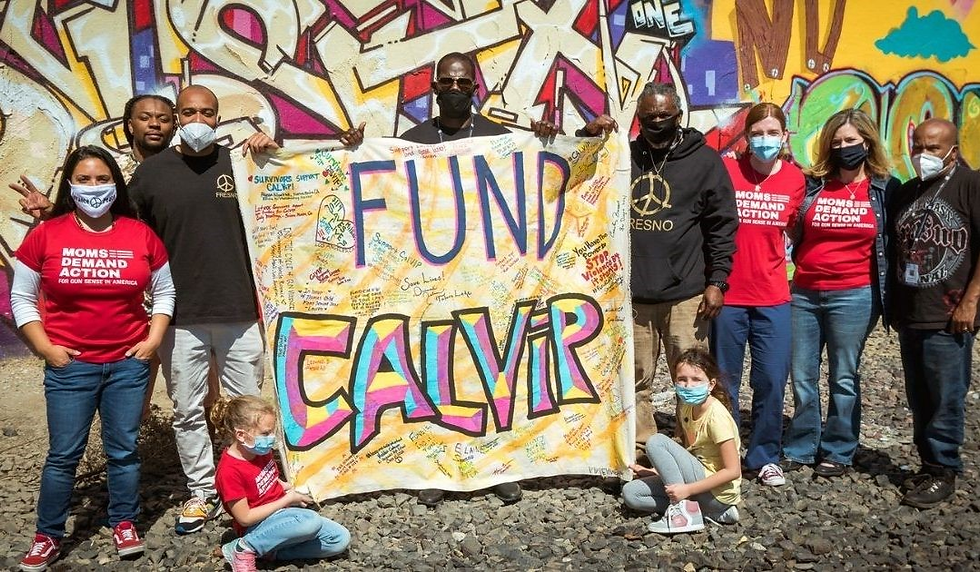
In 2023 Fresno Economic Opportunities Commission (Fresno EOC) was awarded a $2 million grant to expand the Advance Peace Fresno program, further reducing gun violence and enhancing community safety. The funding supports public health and safety strategies, mentorship, and peaceful conflict resolution, with strong support from the Fresno Police Department and City leaders.
Learn more about Advance Peace here.
Key Statistics:
74 homicides in both 2021 and 2020
61 homicides in 2022, a 16.2% reduction
25 homicides in 2023, a 43.3% reduction
60% reduction in homicides in Fresno since 2021
30 homicides in 2024, down from 35 the previous year

African American Coalition (AAC)
Founded by Shantay R. Davies-Balch in 2019, the African American Coalition (AAC) emerged as a rapid response to the COVID-19 pandemic, committed to slowing the spread of the virus within Fresno County's Black community. BLACK Wellness & Prosperity Center, in partnership with local community-based organizations (CBOs), led efforts to form AAC, which initially provided testing, contact tracing, isolation, and quarantine support. When vaccines became available, AAC administered thousands of COVID-19 vaccines. Propelled by the urgent need to address equity gaps in COVID-19 response plans, particularly for Fresno County’s Black community, AAC trained a primarily Black workforce of Community Health Workers to provide outreach, education, and vaccinations. Through these efforts, AAC evolved into a permanent addition to Fresno’s public health workforce, continuing to offer a wide range of supports, education, and vaccines to promote community health and well-being.
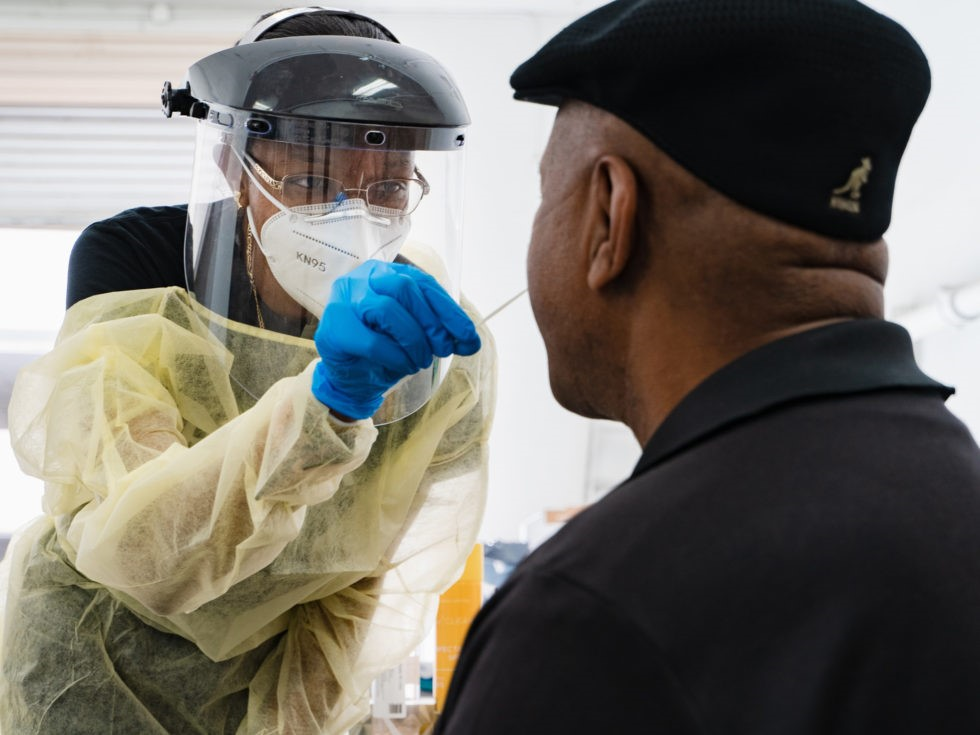
As part of its COVID-19 Equity Project, AAC, in collaboration with community partners, administered nearly 13,000 vaccines and provided outreach and education to more than 23,200 members of Fresno’s community. Black residents make up approximately 5% of Fresno County’s population and 39% of the community members vaccinated through the AAC were Black. AAC's approach has been recognized as a success across the state and has served as a model in other critical areas, such as doula care for Black women.
In July 2023, AAC and BWPC officially announced their integration into a single entity, under the organizational leadership of BWPC. This integration leveraged their shared history and commitment to the well-being and prosperity of Fresno’s Black community, enhancing both organizations' ability to provide community support, resources, and services. As part of this shift, the AAC clinic moved to the BWPC building and became part of the Fresno Community Health Improvement Partnership (FCHIP) Network. In this network, Community Health Workers (CHWs), known at BWPC as Community Health Advocates, identify specific health inequities and deliver sustainable, long-term health outcomes to vulnerable Fresno communities.
AAC acknowledged the unique experiences of Black residents and focused on building trust through cultural understanding. This effort represents a historical moment in Fresno’s history and is a testament to how community leaders can come together to mobilize a complex coalition that rapidly implements strategies, contributing to reductions in preventable morbidities and mortalities. Original African American Coalition partners included the African American Clergy Caucus of Fresno CA, BLACK Wellness & Prosperity Center, Cultural Brokers, Inc., Dr. Venise Curry, Fresno Metro Black Chamber of Commerce, KNOW ONE, Take A Stand, and West Fresno Family Resource Center.

Another Level Training Academy (ALTA)
Another Level Training Academy (ALTA) was founded in 2016 with a mission to heal, rebuild, and strengthen communities of color. Established by Nia, whose personal experiences as a single mother and an advocate for individuals impacted by incarceration shaped the organization’s foundation, ALTA initially focused on addressing recidivism and destructive behavior. Following the tragic loss of her daughter and granddaughter in 2017, Nia expanded ALTA’s mission to address the interconnected challenges affecting Fresno’s 93706 community, including mental health, grief, education, environmental justice, and health disparities.
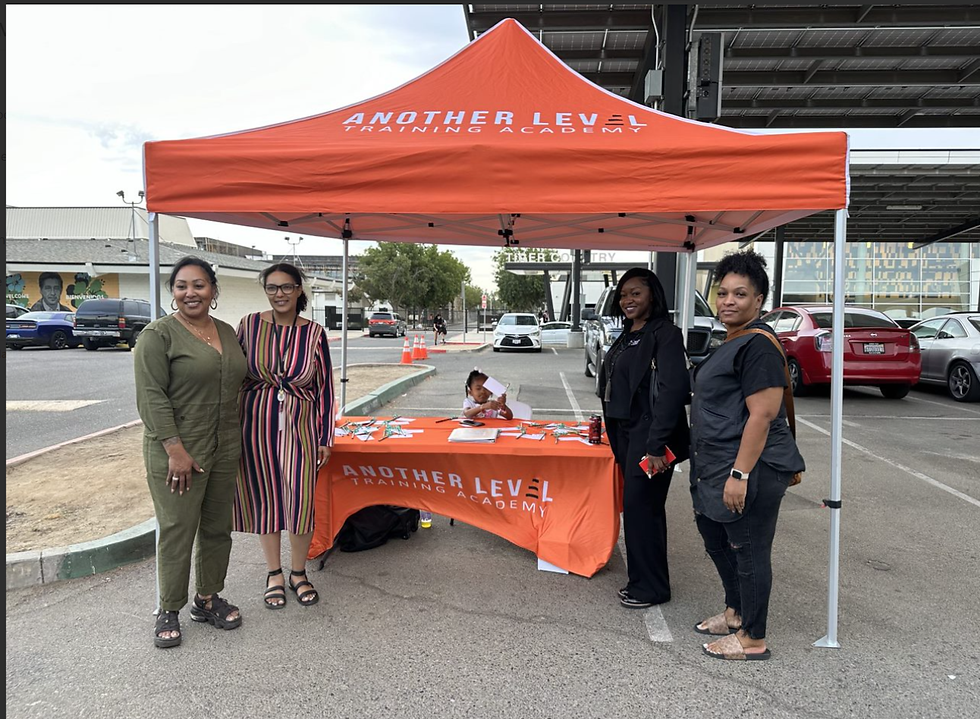
ALTA’s work is deeply rooted in community, culture, and connection. The organization offers healing workshops, cooking demonstrations to promote healthy lifestyles, and employs an Asset-Based Community Development approach to help residents recognize their strengths and build collective power.
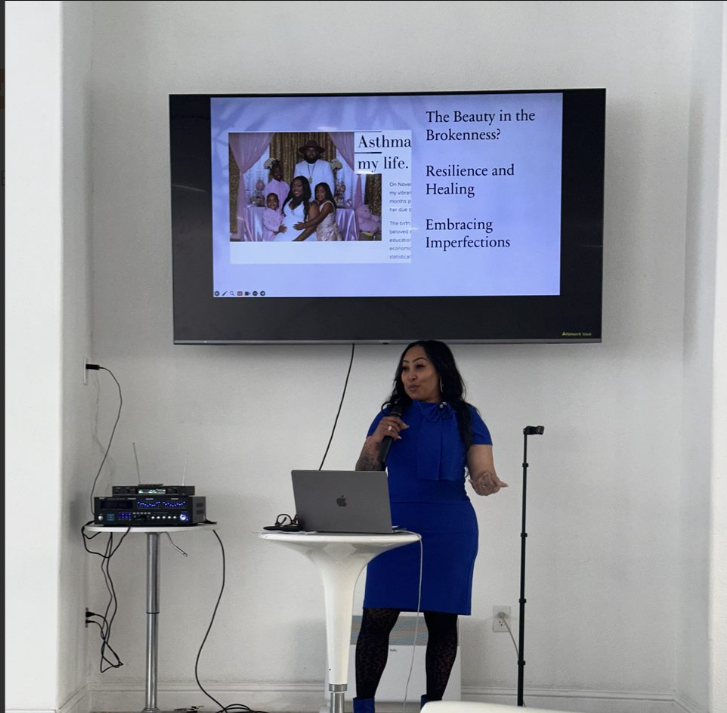
Through the Traditional African Braiders Academy, ALTA preserves and teaches the cultural art of braiding as a means of storytelling, legacy-building, and empowerment. The African American Student Leadership Academy and writing-based college readiness programs provide students and families with mentorship, educational guidance, and cultural affirmation. Additionally, Youth Community Conversations (YCC) create spaces for young people to express themselves, develop leadership skills, and engage in meaningful dialogue about issues affecting their lives.

BLACK Wellness & Prosperity Center (BWPC)
Founded by Shantay R. Davies-Balch in 2019. BLACK Wellness & Prosperity Center (BWPC) is a community-based organization committed to addressing the persistent disparities affecting Black moms and babies in Fresno and beyond. BWPC’s work focuses on improving Black maternal, infant, and community health outcomes by connecting families to resources, providing health education, and offering culturally affirming support through community health advocates and doulas. A cornerstone of BWPC’s work is Black Maternal Health Week (BMHW), held annually from April 11-17. BWPC launched Fresno’s first BMHW in 2019, reaching over 1,000 BIPOC mothers.

Racism remains a root cause of maternal and child health disparities, particularly in California, where Black families experience some of the worst outcomes. In Fresno, Black women face a 13.5% preterm birth rate—compared to 9% for white women—underscoring the urgent need to expand access to care, advocate for policy change, and implement targeted solutions. BWPC is at the forefront of these efforts, driving systemic change and advancing equitable healthcare.
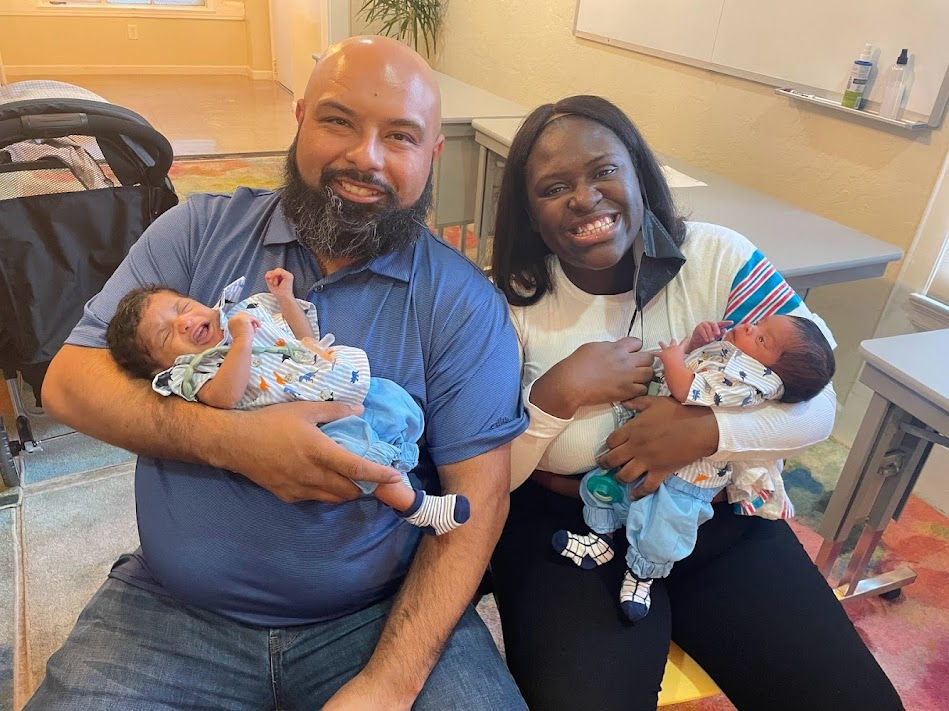
To enhance birth support, BWPC established the BLACK Doula Network (BDN), which developed a comprehensive 125-hour community doula training curriculum. BWPC is the first in the region to establish formal agreements for integrating doulas into healthcare systems and forged a first-of-its-kind agreement with Community Health Systems (CHS), allowing doulas to complete hospital observation hours. In early 2025, BWPC and Saint Agnes Medical Center executed a Doula Observation Agreement, marking a significant step in expanding access the integrations of trained doulas into hospital-based care teams. Additionally, BWPC played a key role in statewide advocacy for Medi-Cal reimbursement of doula services, making them more accessible to low-income families.
BWPC’s collaborative approach extends beyond maternal health. In response to COVID-19, BWPC partnered with local community-based organizations to form the African American Coalition (AAC), training a predominantly Black workforce of Community Health Workers. AAC provided testing, outreach, and over 13,000 vaccinations, building trust and improving health outcomes in Fresno’s Black community.
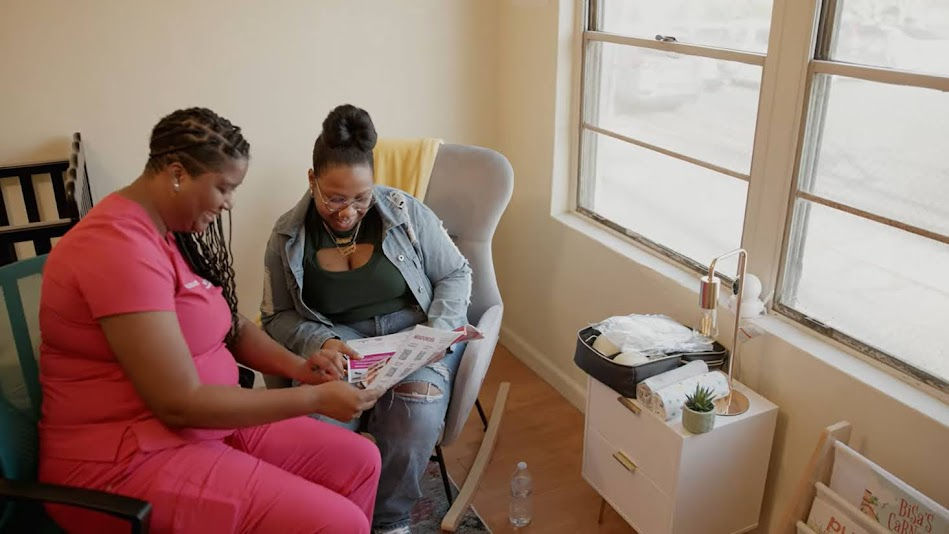
Expanding its impact, BWPC established a 12,000 sq. ft. community clinic and training facility, featuring a state-of-the-art Simulation (SIM) Lab with "Olivia," a high-tech birth simulator designed to enhance doula and community education. Looking ahead, BWPC plans to establish a full-service women’s health and birthing center to further address systemic inequities. BWPC envisions a future where women, particularly those from marginalized communities, have equitable access to high-quality care and resources to thrive.
In 2025. BWPC will launch BLACK Pregnancy Care Support program this year, which offers expectant moms' guidance, health education, and opportunities for community building, led by Certified Nurse Midwife, Brittany Mbong, BDN Doulas, and Community Health Advocates.
Beyond direct services, BWPC influences policy at the state and institutional levels. The organization has contributed to the California Surgeon General’s Perinatal Round Table, the Stanford California Maternal Quality Care Collaborative (CMQCC) Executive Committee, and the Department of Health Care Services (DHCS) Doula Stakeholder Group, shaping California’s Medi-Cal doula benefit with a focus on racial equity.
Through its investment in healthcare infrastructure, community partnerships, and programs like the BLACK Doula Network and the upcoming BLACK Pregnancy Care Support, BWPC is shaping the future of maternal health in Fresno. By ensuring Black families have access to essential resources and care, BWPC remains steadfast in its mission to eliminate health disparities and improve outcomes in the community.

Black Women Organized for Political Action (BWOPA)
Black Women Organized for Political Action (BWOPA) was established in 1968 by Dezie Woods-Jones, emerging from the Bay Area Women for Dellums as a powerful movement to amplify the political voice of Black women. As a statewide 501(c)(4) organization, BWOPA's mission is to activate, motivate, promote, support, and educate African American women about the political process. By equipping Black women with the knowledge and tools to engage in political activism, BWOPA has focused on five key issue areas: health, education, criminal justice reform, economic security/jobs, and civic engagement, strengthening Black women's voices across California.
The Fresno/San Joaquin Valley (SJV) Chapter of BWOPA was established over 30 years ago by Hon. Dezie Woods-Jones and led by its first president, Arthelma Johnson. Today, under the leadership of President Hon. Cynthia Sterling, the chapter continues to support and educate Black women through the political process across Fresno, Madera, Kings, and Kern counties. The BWOPA, including the Fresno Chapter has played a role in breaking political barriers by supporting the election of the first African American women to various positions, including Mayor, City Councilmember, and School Board Trustee. They have also backed campaigns for leaders such as Vice President Kamala Harris, Congresswoman Barbara Lee, and California State Superintendent Tony Thurmond.

The Fresno/SJV Chapter has a rich history of community impact, and its greatest accomplishment is the leadership of its members in improving the health and well-being of the community. Former Vice President Sara Paramore established the first Black & Vaxxed Campaign & Clinic in the San Joaquin Valley during the COVID-19 pandemic. Chapter member Shantay Davies-Balch founded the BLACK Wellness & Prosperity Center dedicated to serving the unmet needs of Black mothers and babies. Another former Vice President and head of the Black Nurses SJV Chapter, Dr. Carolyn Drake, opened the first COVID-19 vaccine clinic dedicated to serving Fresno County's Black community. This effort provided thousands of men, women, and children of color with access to vaccinations who may not have had the opportunity otherwise.

BWOPA and the BLACK Wellness & Prosperity Center (BWPC) maintain a strong collaborative relationship. The "Super Saturday Conversations" initiative, jointly led by BWOPA and BWPC, engaged policymakers in discussions addressing maternal health disparities in California. This partnership reflects both organizations' commitment to improving community outcomes through shared learning, strategic collaboration, and community feedback.
Today, BWOPA continues to create pathways for Black women to influence policies that drive meaningful change, ensuring their voices shape the future of California's communities.

Concerned Citizens
For decades, Mother Mary Curry, daughter Dr. Venise Curry, and the Concerned Citizens have been at the forefront of fighting for justice in education, health, and the environment in Fresno. Their relentless advocacy led to several historic victories, notably the closure of the Darling Rendering Plant, a major source of pollution and health risks in Southwest Fresno.
In the 1970s, Mother Curry founded the Concerned Citizens for Quality Education to challenge segregation and advocate for educational equality. Through district-wide boycotts and strategic dialogues with the Fresno Unified School District, they pushed for reforms that included improvements in violence prevention, parent involvement, and staff diversity. Mother Curry made history in 1985 by becoming the first African American elected to the Fresno Unified Board of Trustees, and she played a key role in securing funding for the West Fresno City College Satellite Campus.
Mother Curry’s commitment to justice extended far beyond education. She also founded the Concerned Citizens of West Fresno, which spearheaded efforts to close the Darling Rendering Plant. The plant, which emitted foul odors and posed severe health risks, became a focal point of their activism. Dr. Venise Curry, alongside her mother and the Concerned Citizens, highlighted the devastating health impacts of industrial pollution on Southwest Fresno residents, including rising rates of asthma, respiratory illnesses, and preterm birth. With nearly 20% of children in Fresno suffering from asthma, exacerbated by the valley’s geography, the health crisis became a dire concern. In West Fresno, the infant mortality rate was 12.3%, a statistic Dr. Curry describes as “a third world country number.” In 2017, West Fresno was named the most “environmentally, socially, and economically vulnerable place” in California, while Fresno’s air quality ranked among the worst in the nation.
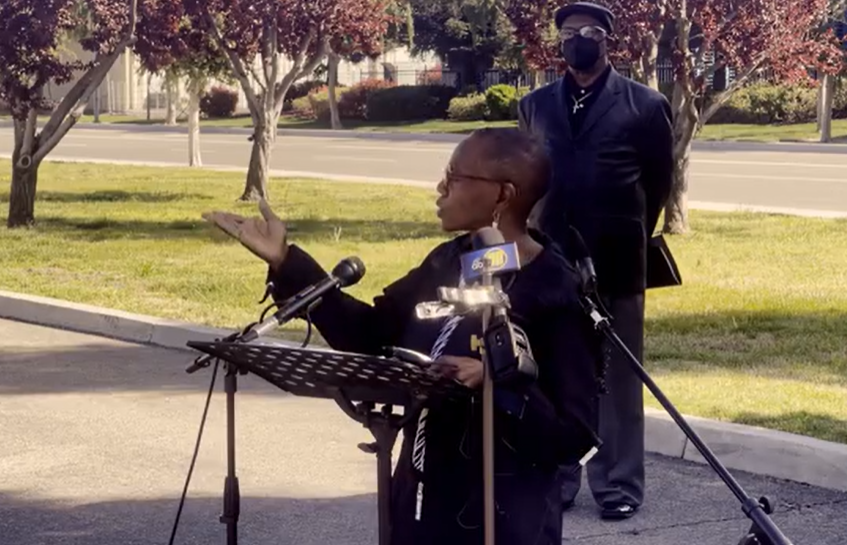
Despite these overwhelming challenges, the advocacy of the Curry family and Concerned Citizens of West Fresno led to a historic victory in 2019 when the Fresno City Council voted to relocate the Darling Plant, marking a major win for the community.
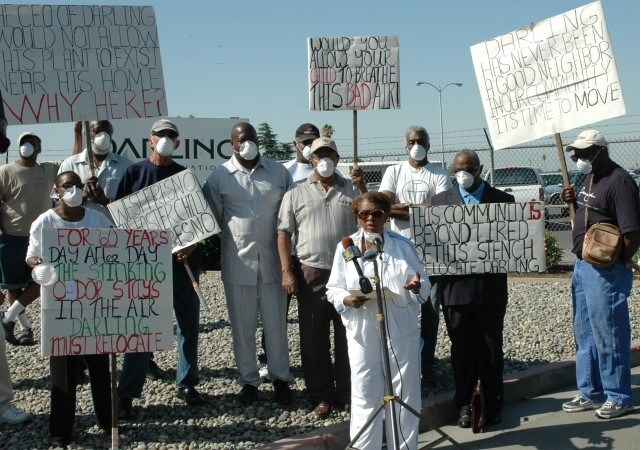
While the closure of the Darling Plant marked a significant milestone, the work of the Concerned Citizens of West Fresno is far from over. The Curry family’s ongoing activism inspires us all, proving that when we come together, we can overcome injustice and create a better future for everyone.
West Fresno Opposes the Elm Ave. Rezone, Media Event, March 26, 2021: https://youtu.be/astipt6ETaE?feature=shared

References:
Malawa, Z., Gaarde, J., & Spellen, S. (2023). Racism as a Root Cause Approach: A New Framework. Racism as a Root Cause Journal.
Centers for Disease Control and Prevention (CDC). (2023). Why is addressing SDOH important? Centers for Disease Control and Prevention. Retrieved from https://www.cdc.gov/about/priorities/why-is-addressing-sdoh-important.html
World Health Organization (WHO). (2023). Social determinants of health. World Health Organization. Retrieved from https://www.who.int/health-topics/social-determinants-of-health#tab=tab_1
Satcher Health Leadership Institute. (n.d.). Political Determinants of Health. Satcher Health Leadership Institute. Retrieved from https://satcherinstitute.org/priorities/political-determinants-of-health/



